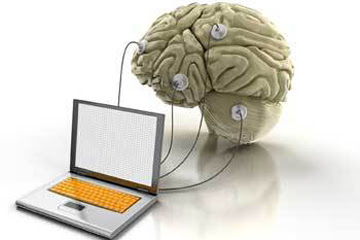
Breaking News
 Israel First Vs America First Conservatives
Israel First Vs America First Conservatives
 The COVID Vaccine DNA Bombshell They Tried to Hide | Exclusive with Dr. David Speicher
The COVID Vaccine DNA Bombshell They Tried to Hide | Exclusive with Dr. David Speicher
 Alarm Bells Going off EVERYWHERE, and Putin and China Smell Blood | Redacted w Clayton Morris
Alarm Bells Going off EVERYWHERE, and Putin and China Smell Blood | Redacted w Clayton Morris
 Ben Shapiro Joining CNN Exposes His REAL Scheme
Ben Shapiro Joining CNN Exposes His REAL Scheme
Top Tech News
 Goodbye, Cavities? Scientists Just Found a Way to Regrow Tooth Enamel
Goodbye, Cavities? Scientists Just Found a Way to Regrow Tooth Enamel
 Scientists Say They've Figured Out How to Transcribe Your Thoughts From an MRI Scan
Scientists Say They've Figured Out How to Transcribe Your Thoughts From an MRI Scan
 SanDisk stuffed 1 TB of storage into the smallest Type-C thumb drive ever
SanDisk stuffed 1 TB of storage into the smallest Type-C thumb drive ever
 Calling Dr. Grok. Can AI Do Better than Your Primary Physician?
Calling Dr. Grok. Can AI Do Better than Your Primary Physician?
 HUGE 32kWh LiFePO4 DIY Battery w/ 628Ah Cells! 90 Minute Build
HUGE 32kWh LiFePO4 DIY Battery w/ 628Ah Cells! 90 Minute Build
 What Has Bitcoin Become 17 Years After Satoshi Nakamoto Published The Whitepaper?
What Has Bitcoin Become 17 Years After Satoshi Nakamoto Published The Whitepaper?
 Japan just injected artificial blood into a human. No blood type needed. No refrigeration.
Japan just injected artificial blood into a human. No blood type needed. No refrigeration.
 The 6 Best LLM Tools To Run Models Locally
The 6 Best LLM Tools To Run Models Locally
 Testing My First Sodium-Ion Solar Battery
Testing My First Sodium-Ion Solar Battery
 A man once paralyzed from the waist down now stands on his own, not with machines or wires,...
A man once paralyzed from the waist down now stands on his own, not with machines or wires,...
Several tech billionaires are openly or secretely funding broadband mind computer interfacing...

Johnson isn't alone in believing that "neurotechnology" could be the next big thing. To many in Silicon Valley, the brain looks like an unconquered frontier whose importance dwarfs any achievement made in computing or the Web.
According to neuroscientists, several figures from the tech sector are currently scouring labs across the U.S. for technology that might fuse human and artificial intelligence. In addition to Johnson, Elon Musk has been teasing a project called "neural lace," which he said at a 2016 conference will lead to "symbiosis with machines." And Mark Zuckerberg declared in 2015 that people will one day be able to share "full sensory and emotional experiences," not just photos. Facebook has been hiring neuroscientists for an undisclosed project at Building 8, its secretive hardware division.
Even when speaking to a computer program like Alexa or Siri, you can convey at most about 40 bits per second of information and only for short bursts. Compare that to data transfer records of a trillion bits per second along a fiber-optic cable.



